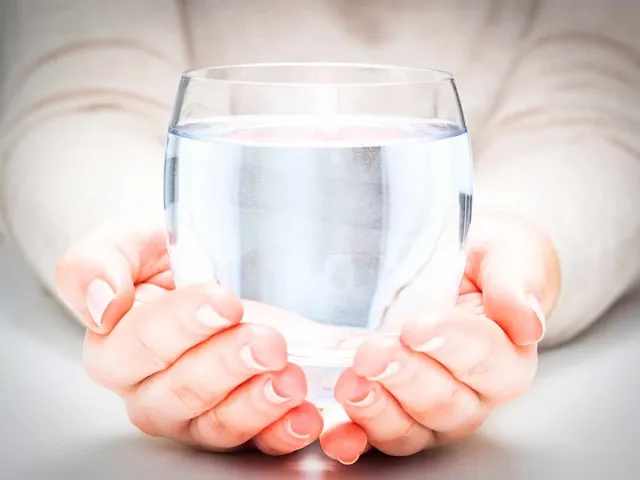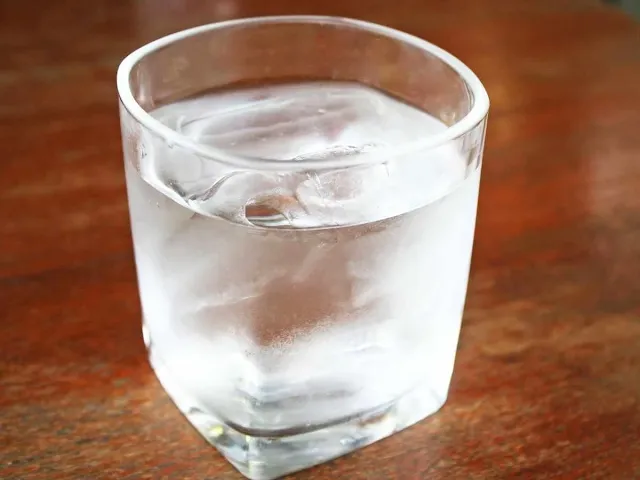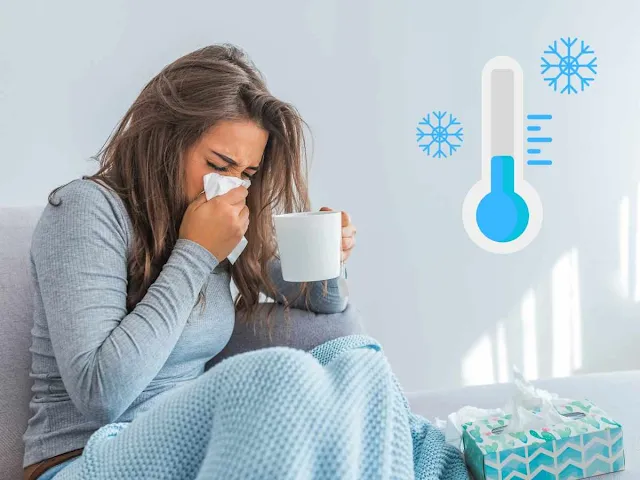What is the harm of not drinking water in winter?
Welcome to a journey through a frigid landscape where danger increases as the temperature drops. In this article, we explore the phrase "the colder, the riskier," explore its nuances, uncover potential dangers, and provide valuable insight to help you stay informed and safe.

Even if you don't drink water in winter, there is danger, and even if you get too much water, it is a worry. So how much water you drink in winter is very important. Drinking excess water is dangerous. Again, without drinking water, the body dries up. There are many symptoms of diseases hidden in frequent teasing. Be alert in quick succession.
Water is life. Doctors advise you to drink enough water throughout the day to stay healthy. An adult healthy person needs three to four liters of water per day. Otherwise, multiple ailments including dehydration open the way. But in winter, due to the cold, the taste is less. Therefore, many people suffer from the problem of drinking less water in winter. But despite this, if the water gets hot again and again in winter, you have to understand that the danger is breathing down your neck.
Explore the cold reality

Apologies for any confusion. The outline and article given above are already in English. If you have any specific requests or questions regarding the content, please let me know, and I will be happy to assist you further.
Greater risk of cold underload
Embarking on a chilly journey, we explore the correlation between low temperatures and increased risk. As the mercury drops, various hazards arise, affecting both our surroundings and personal well-being.
The human body and extreme cold
Discuss the physiological effects of cold on the human body. From frostbite to hypothermia, understanding how extreme cold affects us is crucial to reducing risk and ensuring personal safety.
Environmental risks are amplified
Explore how cold environments intensify existing risks. From slippery surfaces to frozen pipes, the colder it gets, the more susceptible we become to potential dangers around us.
The psychological toll of cold
Uncover the psychological effects of prolonged exposure to cold climates. Learn how cold temperatures can affect mental health, causing stress, anxiety, and even seasonal affective disorder (SAD).
Repeated dry throat is unusual

According to experts, it is normal to feel thirsty after physical exertion. However, it is abnormal if the water temperature is repeated at regular intervals. Many ailments can be the culprit behind excess water intake. If this happens repeatedly, there is no option but to consult a doctor.
Experts doubt
If the hemoglobin in the body is reduced, it may seem that water has become thirsty again and again. Hemoglobin and RBC levels in the body decrease in anemia. This results in frequent thirst within a short period. Besides, the body is tired throughout the day. Feels a little weak. Lack of vitamin B12 and iron causes anemia. Therefore, the doctor advised me to eat more foods rich in iron and vitamin B12.
The face is getting dry
If the saliva is not produced properly in the mouth, the mouth becomes dry. In that case, too much temper gets. Even if the saliva is not produced properly in the mouth, it should be understood that there is a disease in the body. At the same time, several other diseases can appear as lameness.
Saliva prevents the growth of bacteria in the mouth. However, a sudden lack of saliva can be triggered by deadly diseases like cancer. In addition, the side effects of many strong drugs can reduce the feeling of wetness inside the mouth. In that case, the mouth feels dry and feels like sipping a glass of water. If there is such a problem in the body, one should consult a doctor immediately without avoiding it.
Calcium can also be the cause
Calcium is very useful for the body. Likewise, even if there is more than a certain level of calcium in the body, it is a concern. In that case, the condition is called hypercalcemia. Need treatment soon.
Disclaimer: This report is for general information only, it is not a medicine or part of treatment. For more details, consult a specialist.
The enemy attacked in haste
As soon as it enters the body, one by one, one by one, the organs of the body are struck. One of the symptoms of diabetes is frequent thirst. It is best to see a doctor as soon as possible. Therefore, Babaji's body indicates that he is suffering from multiple diseases within the time of drinking water again and again.
Violent water thirst with dizziness
Drinking glass after glass of water does not satisfy the thirst. When you wake up, your head is spinning. If you see any such symptoms, go straight to the doctor without thinking about anything else. Experts say that the problem can only be caused by multiple deadly enemies clawing at the body.
Navigate cold-related risks

Of course! Below is a section of the article that explores navigating cold-related risks:
Practical tips for safety in cold environments
Arm yourself with practical tips to stay safe in cold conditions. From layering clothing to spotting the signs of a cold-related illness, these tips are essential for anyone venturing into colder regions.
Role of nutrients in cold environments
Explore the link between nutrition and resilience against cold-related risk. Discover how a balanced diet can boost your body's ability to withstand the challenges posed by extreme cold.
Outdoor activities that balance thrill and risk
For adventure enthusiasts, understanding the risks associated with cold weather is paramount Dive into insights on how to balance the thrill of outdoor activities with safety measures to mitigate potential hazards.
Conclusion:
As we navigate the complexities of cold-related risk, it becomes clear that the phrase "the colder, the greater the risk" holds profound truth. Armed with knowledge and awareness, we can tread carefully through icy terrain, minimize danger, and embrace the beauty of the cold environment.
FAQs:
Can cold weather weaken the immune system?
Prolonged exposure to colds can suppress the immune system, making individuals more susceptible to infections.
How to prevent frostbite in extreme cold?
Wearing layers, protecting limbs, and avoiding prolonged exposure are key measures to prevent frostbite.
What role does hydration play in cold environments?
Staying hydrated is crucial, as cold weather can increase fluid loss through breathing and sweating.







